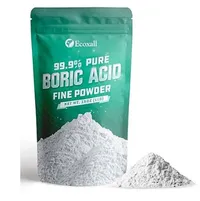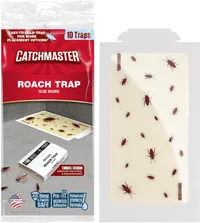How to get rid of roaches quickly and safely
Here’s how to get rid of roaches once and for all
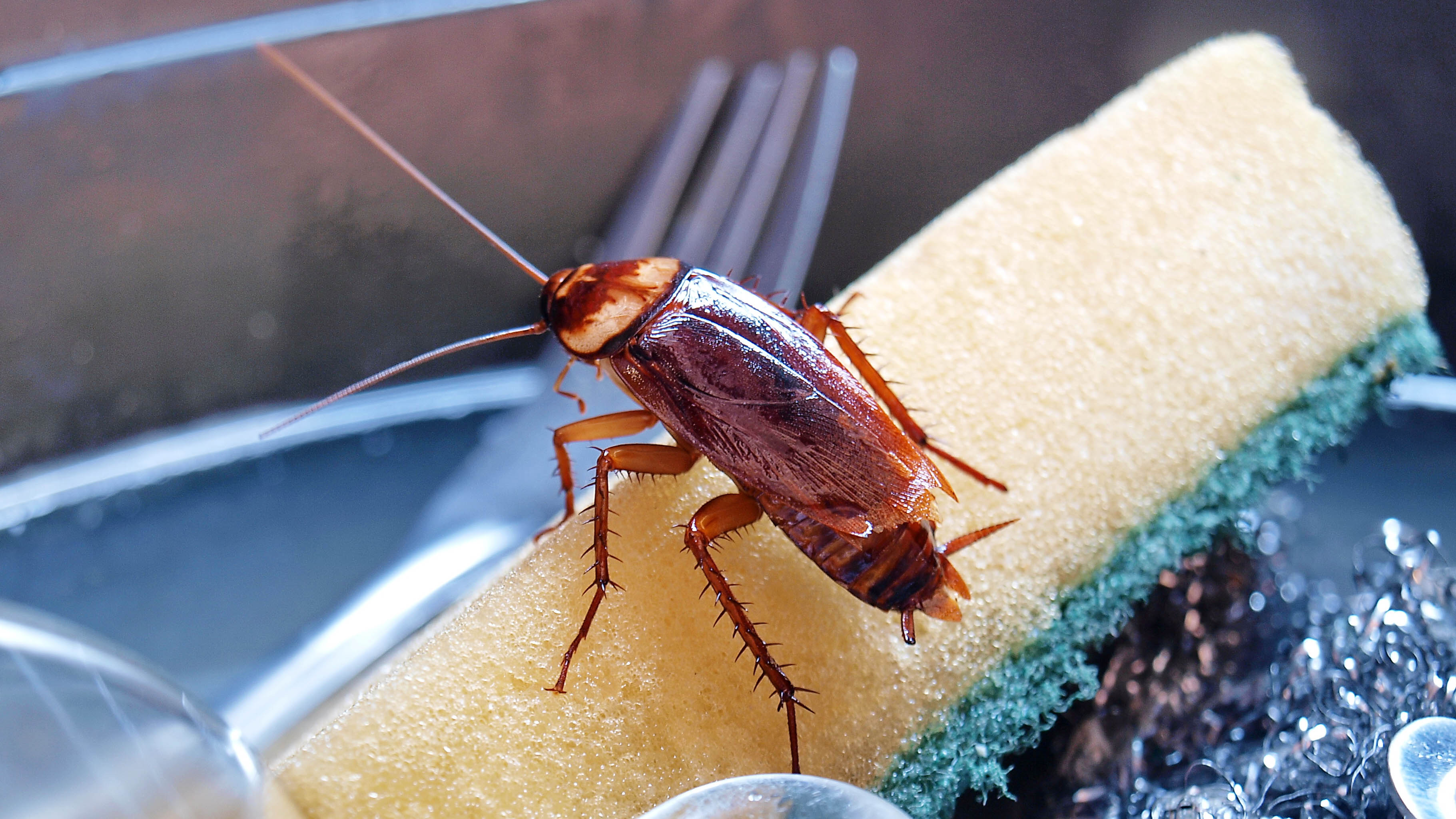
It's always unnerving when you spot these critters in your home, and you’ll need to know how to get rid of roaches. Cockroaches are a common pest, drawn to warm and humid environments. Not only are they known for carrying and spreading disease, but they can quickly multiply into an infestation.
That's why it's so important to get rid of roaches fast, to prevent them from coming back. Before you call the exterminator, there are some useful homemade remedies, as well as chemical-based solutions, that will banish these pests for good. What's more, you'll probably find these items in your kitchen cupboard.
So, if you want to a pest-free home, follow these tips on how to get rid of roaches.
Want to know why roaches keep coming back? Here are 7 things that attract roaches to your home — and how to fix it. Plus, here's 7 telltale signs of roaches in your home.
How to get rid of roaches with home remedies
Before you attempt to get rid of cockroaches using any of the following remedies, it’s imperative that you first clean your home and remove anything which may be attracting the insects. That includes food left on the countertop, dirty dishes and overflowing garbage cans.
Get rid of any clutter which may be sheltering the roaches as well, particularly cardboard boxes, which these insects love.
1. Baking soda
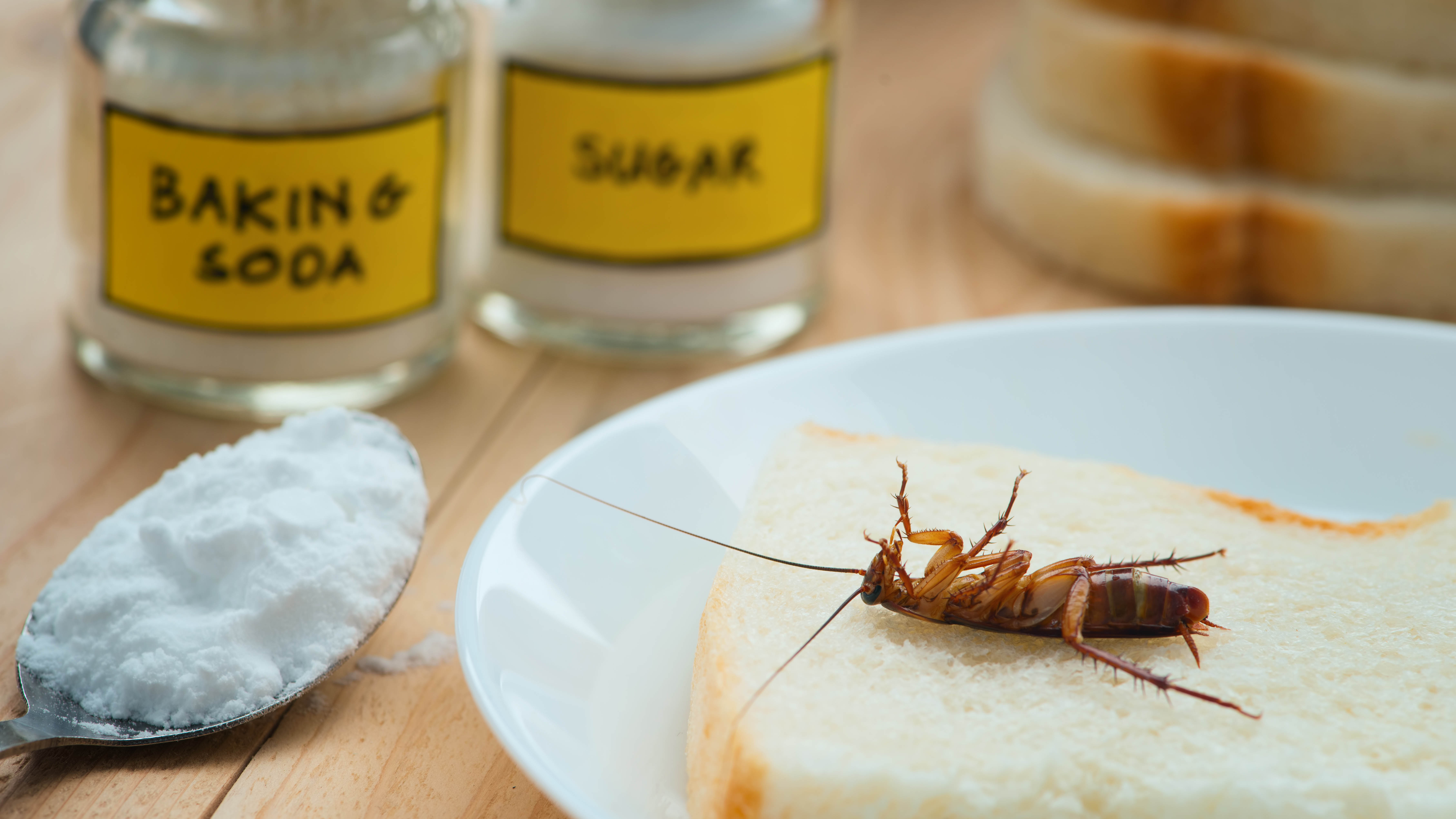
While it’s well-relied on for everyday cleaning, baking soda is very effective at killing cockroaches too. All you need to do is mix it with something the roaches will likely consume — diced onions work well, as does sugar and cheese.
Get instant access to breaking news, the hottest reviews, great deals and helpful tips.
Divide the solution between a couple of plates and place them in high traffic roach areas, such as on the kitchen and bathroom floors. Once the roaches eat the baking soda, they will die quickly. The only drawback with this method is you will need to find and get rid of the dead roaches. May sure any curious pets don’t come across this home remedy either.
2. Boric acid
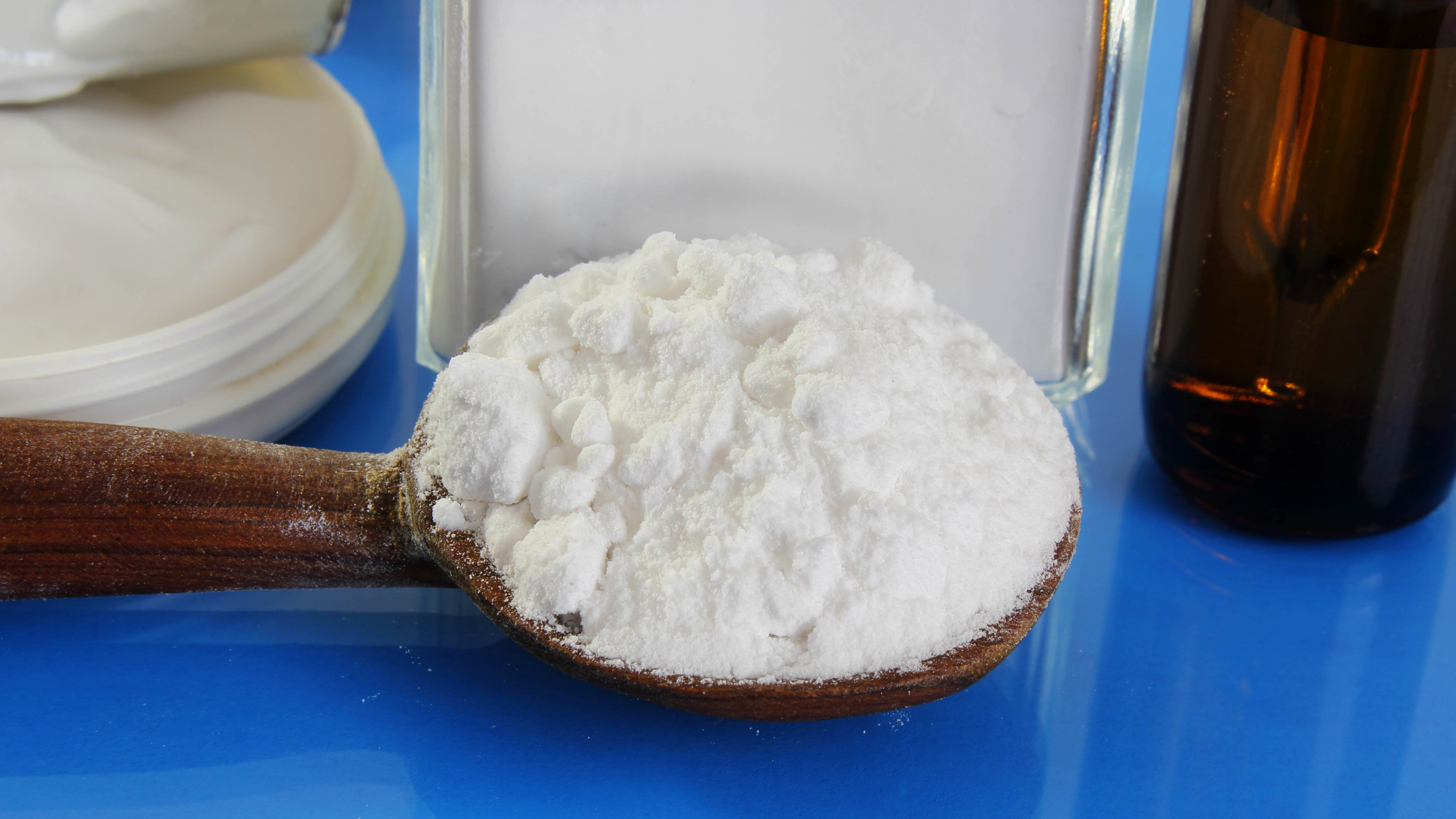
Boric acid is deadly to cockroaches as well. Simply combine equal amounts of it with flour and sugar to create a dough and then break it up into small balls (about the size of a marble). Dot these around your home in areas where roaches frequent.
As the roaches eat the dough, they will ingest the boric acid, which will kill them. Once again, you will need to find and dispose of them after. It’s worth flagging that boric acid is poisonous to pets though, so this method should not be attempted if you have any furry family members. Don’t let any young children find and eat the dough balls either.
Boric Acid Fine Powder 1lb: $14 @ Amazon
Boric acid is a highly effective multipurpose cleaner, suitable to use in the kitchen and laundry as a stain remover and deodorizer. It can also be used as an effective insecticide. This is an industrial strength product with 99.9% purity and care must be taken when handling it.
3. Borax
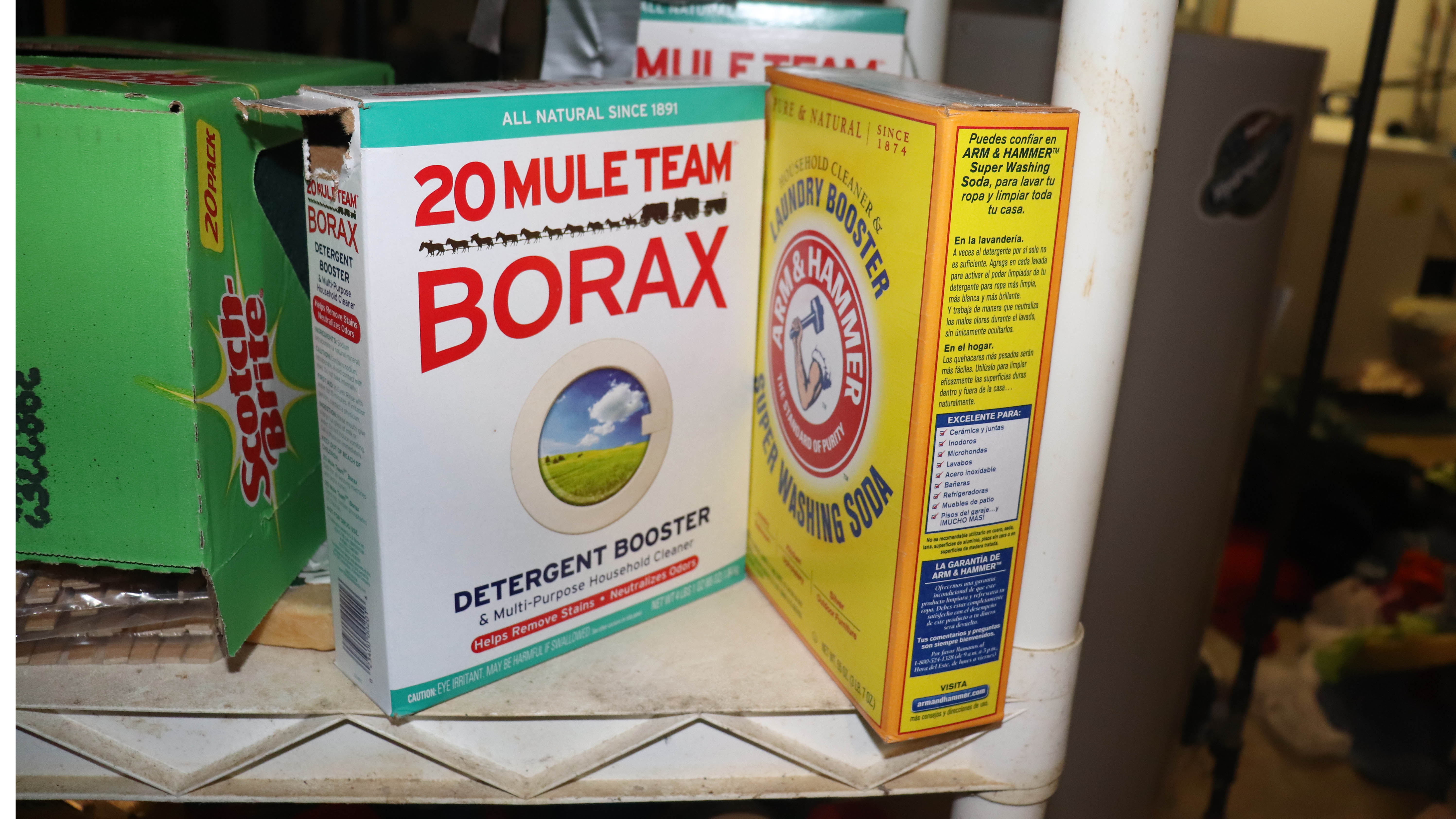
Borax is made from the same chemical compound as boric acid, and while it’s more often used for cleaning, it’s just as effective at getting rid of roaches. Simply combine the powder with something sweet that will attract roaches, much like the above method with baking soda.
Just make sure your pets stay clear of the mixture once again. It can cause stomach upset and irritation if ingested. It can also be potentially dangerous in large doses. Once the roaches ingest the Borax it will kill them, and you will need to find and clear what remains.
4. Citrus
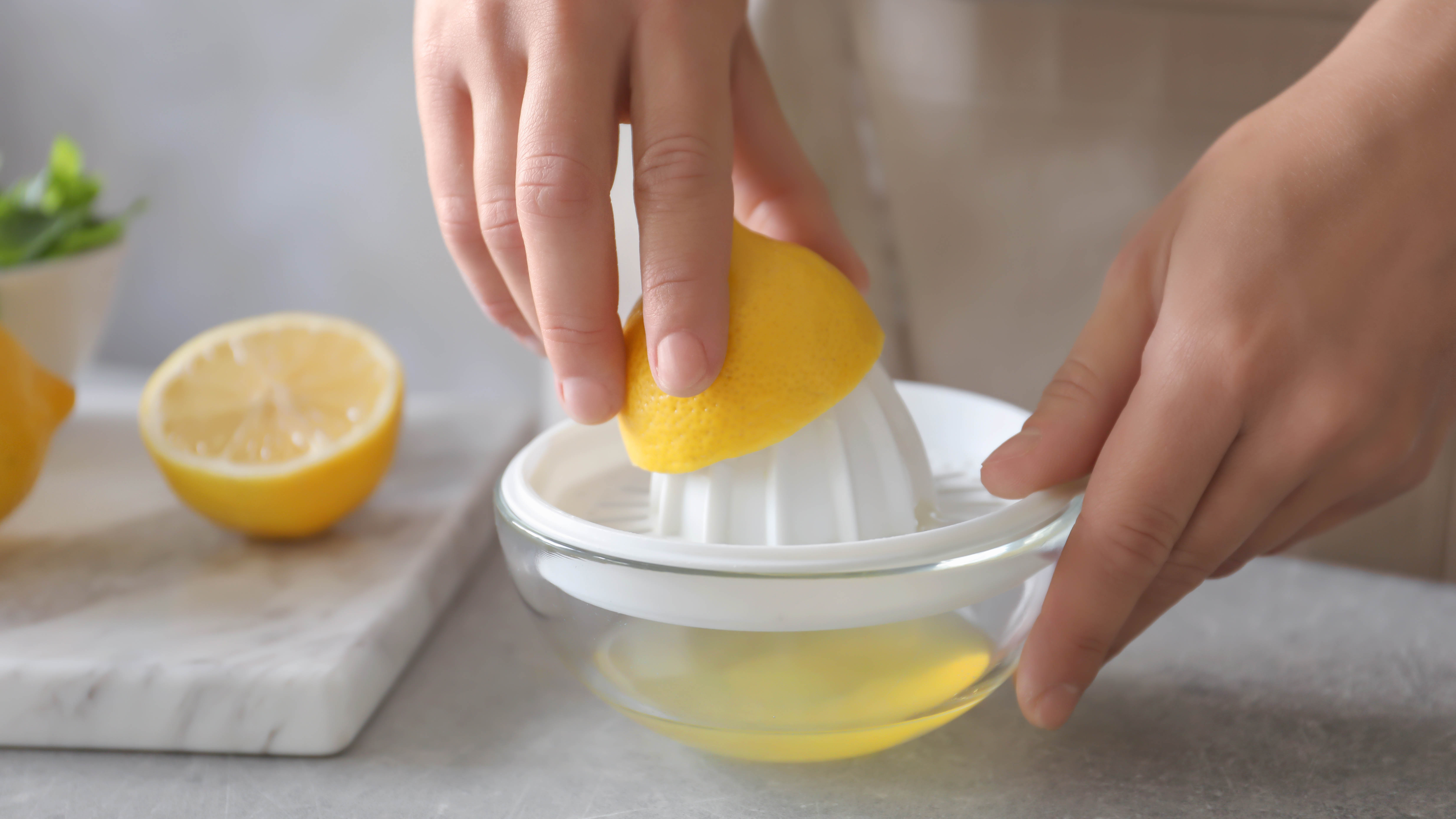
Citrus won’t kill the roaches, but it will certainly put them off your home. The smell of lemon in particular repels cockroaches and can be used as a great deterrent. To take advantage, incorporate the smell of lemons into your cleaning routine.
You can use lemon-scented cleaning products, or combine lemon oil with water as you clean your floors. If you want to go even further, you can leave citrus peels around your home, although you will need to remember to replace these every few days.
5. Diatomaceous Earth
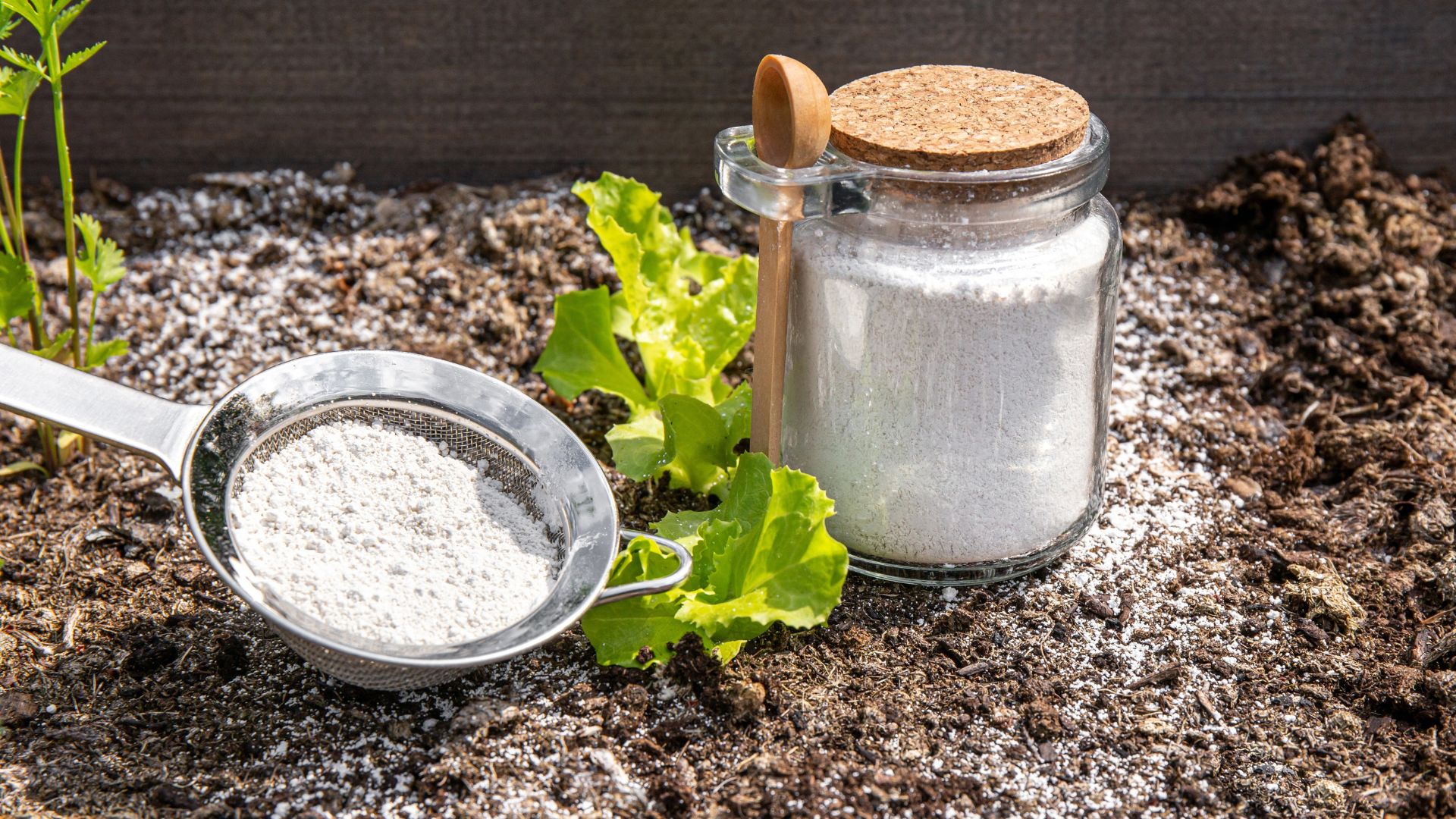
Also known as DE, Diatomaceous Earth is a natural insecticide that will dehydrate the cockroaches on contact. It sticks to them as they walk through it and will kill them later on by dissolving the exoskeleton.
You simply need to sprinkle it in areas of high traffic for best effect. You will need to dispose of the bodies after they’ve died though, which may be back at the nest. This method is safe for pets and humans, but you need to make sure you use food-grade DE.
6. Essential oils

Much like the scent of lemons, certain oils can act as a natural repellent to roaches as well. Lemongrass and peppermint oils are known to be effective alternatives. Simply mix the oil with water and apply around your home.
Apart from the above, your can also banish cockroaches with this $2 ingredient, which cockroaches can't stand. Just like lemongrass and peppermint oils, cockroaches also turn their noses up at bay leaves.
How to get rid of roaches the traditional way
1. Glue strips and traps
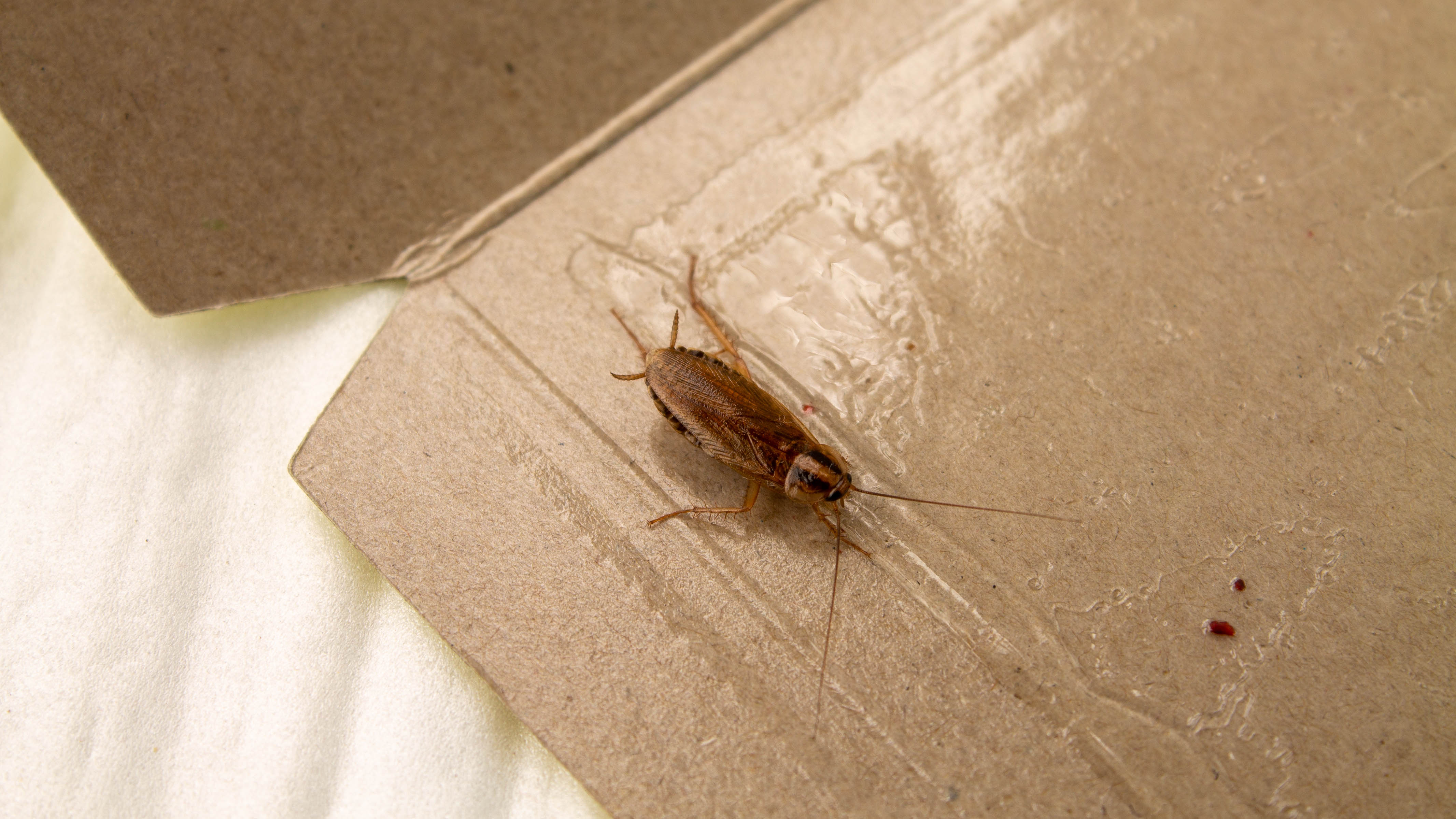
Glue strips and traps can be purchased at local hardware stores and they’re widely available online as well. We recommend Harris Roach Glue Traps ($5.98, Amazon). These can be used to determine high traffic areas.
They essentially attract the cockroaches with a sweet scent and then the glue traps them in place. You will need to monitor the strips though and replace them as and when necessary. Bear in mind that glue traps can also kill harmless insects, so use with caution, and keep away from children and pets.
Catchmaster Roach Trap Glue Boards 10-Pk: $20 @ Amazon
These cockroach glue traps are pre-scented and can be used without additional roach bait. These can also be folded to fit into tight spaces, and are family and pet friendly.
2. Bait
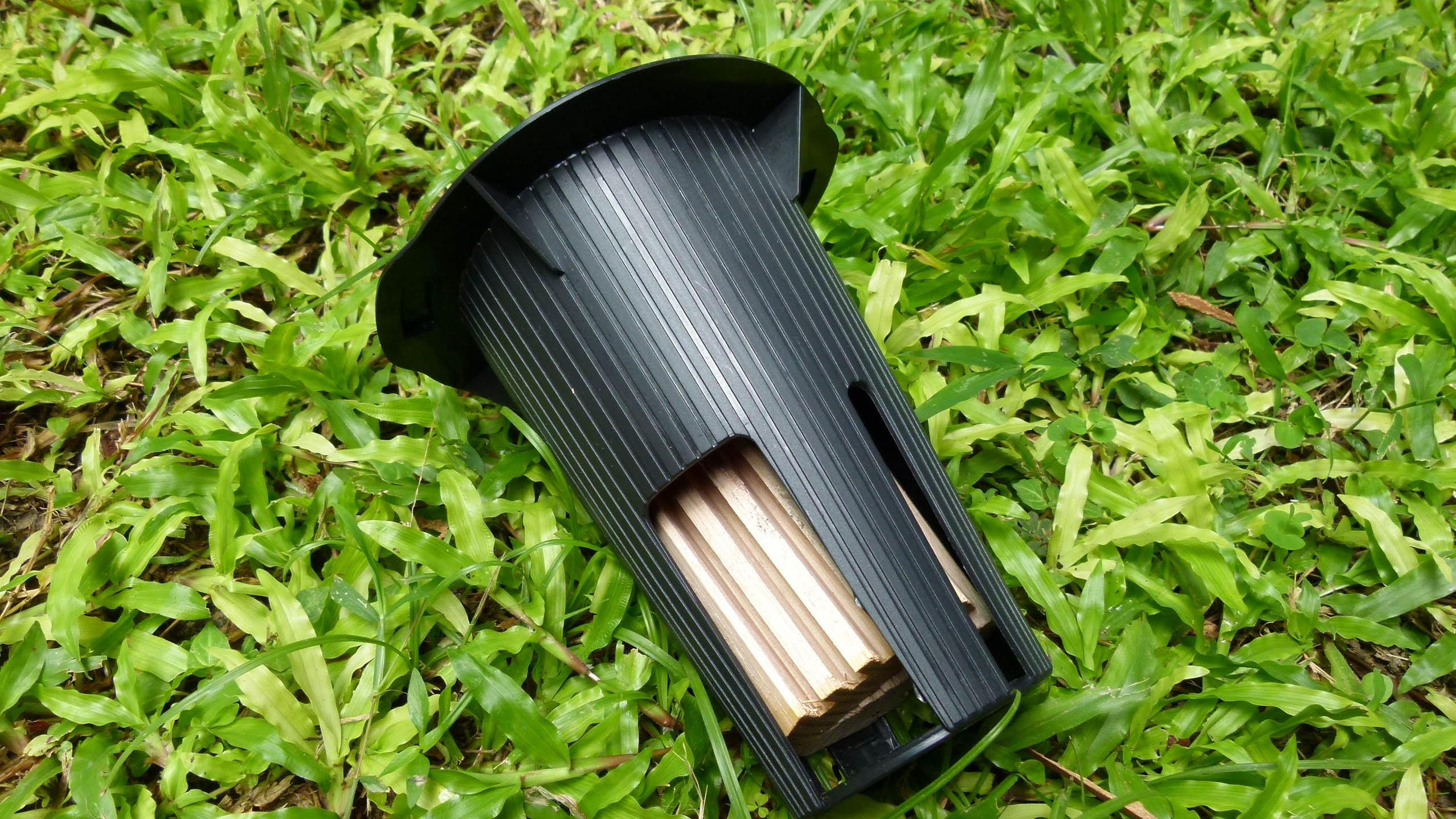
You can also use chemical baits, a more powerful option, which can be purchased at most stores; we recommend Combat Max 12 Month Roach Killing Bait ($11.98, Amazon). These contain insecticides disguised as food, which will attract passing roaches. Once they eat the bait, they carry it back to the nest, die and then spread the poison to the rest of the population as they eat that roach.
These traps are often placed under sinks, large appliances and next to garbage cans, but they should be kept out of reach of pets and children. You will also need to reapply the bait as often as necessary and be prepared to find and clear the dead roaches yourself.
3. Liquid concentrates
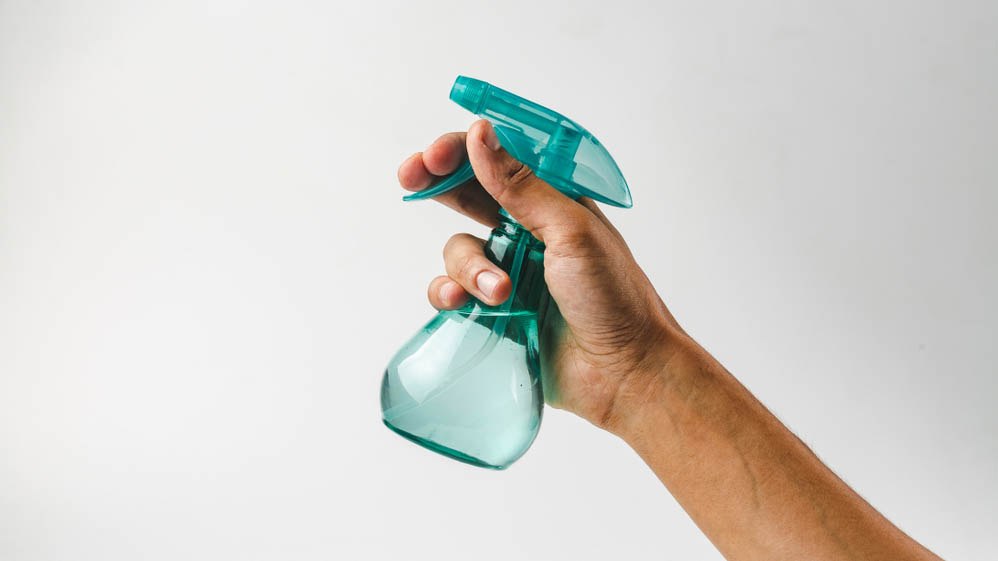
Liquid concentrates are a well-known roach deterrent and are widely available. You essentially dilute the solution with water and spray it in any areas which roaches frequent, such as cracks and crevices. You can apply the solution to surfaces around your home as well.
If all else fails, it’s time to call in a professional. Sometimes an infestation can be so extreme that this is the best method.
Why are roaches attracted to your home?
Cockroaches are attracted to any source of food and water. That means if you’re guilty of leaving dirty dishes in the sink, or you don’t keep on top of crumbs in the kitchen, roaches are likely to be the result. Any standing water will invite cockroaches in as well, which includes leaky pipes or pet water bowls. That’s why it’s imperative that you keep a clean home to limit its interest to roaches.

Your home can also act as a shelter for cockroaches when it’s cold outside, so while you might do your best to keep things clean, they unfortunately might still find their way in, being drawn to warm, humid environments.
These pests will often enter your home through any cracks or crevices they can find. So if your front door doesn’t shut and seal completely, there’s a potential entryway for roaches. They often find their way in via windows as well.
Once in, cockroaches will typically live in hidden spaces such as under appliances, or behind the toilet. They can be quite difficult to spot until they’ve grown in numbers. Being nocturnal, they’re easiest to find at night when you enter a dark room and flick a light on. You might also notice a sweet, unpleasant smell when there’s a heavy infestation.
How to prevent roaches
First, it’s always best to keep a clean home, getting rid of any clutter and cardboard boxes — roaches thrive in these. While this won’t guarantee a cockroach-free future, it certainly helps your chances. You should also seal off any obvious crevices where the roaches may have previously entered from. So take a look around your doors and windows and caulk any gaps.
You should also check your faucets and pipes regularly for leaks as these too can attract roaches. If you spot one, here’s how to fix a leaky bathtub faucet for guidance.

As the Homes Content Editor, Cynthia Lawrence covers all things homes, interior decorating, and garden-related. She has a wealth of editorial experience testing the latest, ‘must-have’ home appliances, writing buying guides and the handy ‘how to’ features.
Her work has been published in various titles including, T3, Top Ten Reviews, Ideal Home, Real Homes, Livingetc. and House Beautiful, amongst many.
With a rather unhealthy obsession for all things homes and interiors, she also has an interior design blog for style inspiration and savvy storage solutions (get rid of that clutter!). When she’s not testing cool products, she’ll be searching online for more decor ideas to spruce up her family home or looking for a great bargain!
 Club Benefits
Club Benefits





